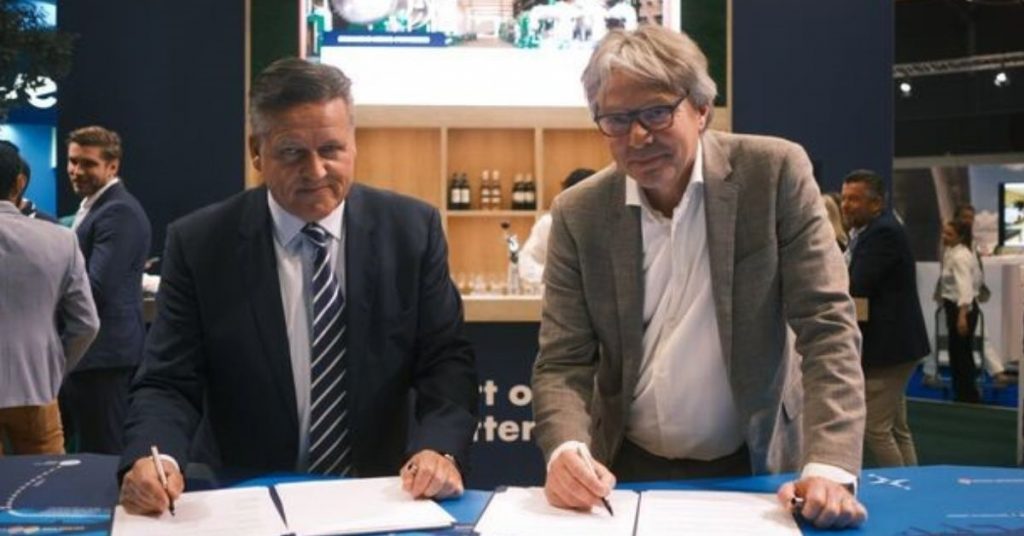he Port of Rotterdam Authority and EDGE Navigation have signed a Letter of Intent (LoI) to collaborate on building infrastructure to support the use of liquid hydrogen (LH₂) in maritime transport. The agreement was formalized during the World Hydrogen Summit held in Rotterdam.
The partnership aims to position Rotterdam as a key hub for maritime decarbonisation by preparing for the integration of LH₂-powered vessels and associated bunkering systems. EDGE Navigation is currently developing a new fleet of commercial cargo vessels powered by liquid hydrogen, along with an LH₂ tanker designed for both import into Northwest Europe and ship-to-ship fuel delivery.
As part of the collaboration, the Port Authority and EDGE Navigation will work together to examine the regulatory, procedural, and operational requirements needed to accommodate LH₂ imports and distribution. This includes developing policies for both ship-to-shore unloading and ship-to-ship refueling operations. The first EDGE LH₂ vessels are expected to enter service by 2028.
Rotterdam is already emerging as a central player in the hydrogen economy, with existing infrastructure supporting carriers like ammonia and liquid organic hydrogen carriers (LOHC). The addition of liquid hydrogen capabilities is expected to further strengthen the port’s role in the global energy transition.
Tags: Energy Transition, Green Port, Maritime Decarbonization, Port of Rotterdam, sustainable Shipping



Recent Posts
Blue Marlin Becomes First Inland Cargo Vessel with Solar-Assisted Propulsion
ABB and Royal Caribbean Partner on 15-Year Deal to Drive Vessel Efficiency and Decarbonization
IET Establishes Centres of Excellence for Green Hydrogen and Electric Vehicle Research
SECI Cancels Green Hydrogen Hub Tender, Pauses Momentum on Flagship Mission
India Pushes Green Shipping and Sustainable Waterways in Northeast with ₹5,000 Crore Investment
Himachal Pradesh Plans Major Boost to Public Transport with E-Buses and Digital Upgrades
Ammonia-Fueled Container Feeder Design Marks Progress in Maritime Decarbonisation
ABS Develops Industry-Leading EV Battery Fire Simulation Modeling